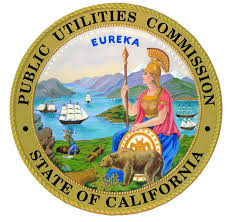South San Francisco, CA August 26, 2016 Submitted by Sheri Boles, CPUC
Please note Sheri Boles has dropped off a large cache of the “10 Things You Can Do To Avoid Fraud” brochure in English and Spanish as written below. You can also pick up copies at City Hall in the Manager’s Office.
August 26, 2016
by Jennifer Leach, Assistant Director, Division of Consumer and Business Education, FTC
In pretty much every article and blog post we put out, you’ll find tips to help you avoid scams. The idea is that, if you can spot a scam, and know how to avoid it, you and your money are more likely to stay together.
Today, we’re releasing a brochure that distills those tips down to the top 10 ways to avoid fraud. This brochure – available online and in *print {see below}– is your one-stop resource to help you spot imposters, know what to do about robocalls, and how to check out a scammer’s claims.
Here are ten things that can help you avoid scammers who try to call you:
- Spot imposters. Scammers often pretend to be someone you trust, like a government official, a family member, a charity, or a company you do business with. Don’t send money or give out personal information in response to an unexpected request — whether it comes as a text, a phone call, or an email.
- Do online searches. Type a company or product name into your favorite search engine with words like “review,” “complaint” or “scam.” Or search for a phrase that describes your situation, like “IRS call.” You can even search for phone numbers to see if other people have reported them as scams.
- Don’t believe your caller ID. Technology makes it easy for scammers to fake caller ID information, so the name and number you see aren’t always real. If someone calls asking for money or personal information, hang up. If you think the caller might be telling the truth, call back to a number you know is genuine.
- Don’t pay upfront for a promise. Someone might ask you to pay in advance for things like debt relief, credit and loan offers, mortgage assistance, or a job. They might even say you’ve won a prize, but first you have to pay taxes or fees. If you do, they will probably take the money and disappear.
- Consider how you pay. Credit cards have significant fraud protection built in, but some payment methods don’t. Wiring money through services like Western Union or MoneyGram is risky because it’s nearly impossible to get your money back. That’s also true for reloadable cards like MoneyPak, Reloadit or Vanilla. Government offices and honest companies won’t require you to use these payment methods.
- Talk to someone. Before you give up your money or personal information, talk to someone you trust. Con artists want you to make decisions in a hurry. They might even threaten you. Slow down, check out the story, do an online search, consult an expert — or just tell a friend.
- Hang up on robocalls. If you answer the phone and hear a recorded sales pitch, hang up and report it to the FTC. These calls are illegal, and often the products are bogus. Don’t press 1 to speak to a person or to be taken off the list. That could lead to more calls.
- Be skeptical about free trial offers. Some companies use free trials to sign you up for products and bill you every month until you cancel. Before you agree to a free trial, research the company and read the cancellation policy. And always review your monthly statements for charges you don’t recognize.
- Don’t deposit a check and wire money back. By law, banks must make funds from deposited checks available within days, but uncovering a fake check can take weeks. If a check you deposit turns out to be a fake, you’re responsible for repaying the bank.
- Sign up for free scam alerts from the FTC at ftc.gov/scams. Get the latest tips and advice about scams sent right to your inbox.